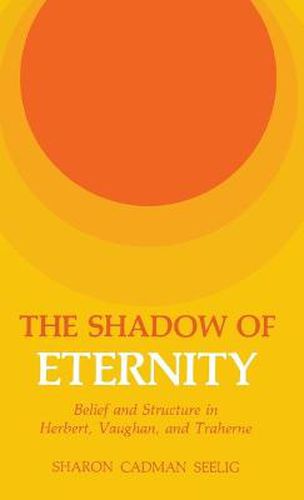Readings Newsletter
Become a Readings Member to make your shopping experience even easier.
Sign in or sign up for free!
You’re not far away from qualifying for FREE standard shipping within Australia
You’ve qualified for FREE standard shipping within Australia
The cart is loading…






The poetry of Herbert, Vaughan, and Traherne represents an attempt to shape their lives and verse around the fact of divine presence and influence, writes Sharon Seelig. The relationship between belief and expression in these three metaphysical poets is the subject of this deeply perceptive study. Each of these poets held to some extent the notion of dual reality, of the world as indicative of a higher reality, but their responses to this tradition vary greatly – from the ongoing struggle between God and the poet of The Temple, which finally transforms the materials of everyday life and worship; to the more difficult unity of Silex Scintillans, with its tension between illumination and resignation; to the ecstatic proclamations of Thomas Traherne, whose sense of divine reality at first seems so strong as to destroy the characteristic metaphysical tension between this world and the next. Seelig’s study proceeds from individual poems to the whole work, exploring the relation of cosmology and religious experience to poetic form.
$9.00 standard shipping within Australia
FREE standard shipping within Australia for orders over $100.00
Express & International shipping calculated at checkout
The poetry of Herbert, Vaughan, and Traherne represents an attempt to shape their lives and verse around the fact of divine presence and influence, writes Sharon Seelig. The relationship between belief and expression in these three metaphysical poets is the subject of this deeply perceptive study. Each of these poets held to some extent the notion of dual reality, of the world as indicative of a higher reality, but their responses to this tradition vary greatly – from the ongoing struggle between God and the poet of The Temple, which finally transforms the materials of everyday life and worship; to the more difficult unity of Silex Scintillans, with its tension between illumination and resignation; to the ecstatic proclamations of Thomas Traherne, whose sense of divine reality at first seems so strong as to destroy the characteristic metaphysical tension between this world and the next. Seelig’s study proceeds from individual poems to the whole work, exploring the relation of cosmology and religious experience to poetic form.